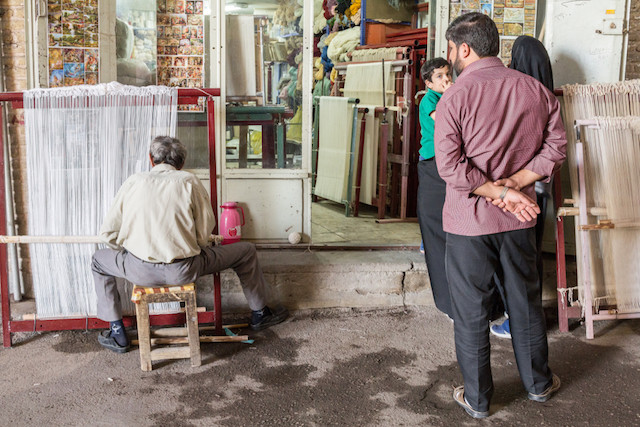Jean Asselborn (LSAP) first made a statement on Luxembourg's position at the foreign affairs minister council in Brussels on Monday. He then reiterated the grand duchy's opinion in a joint response to a parliamentary question published on Wednesday--“It is a European commitment, not a national commitment; it must therefore be given a basis in European law.”
In the parliamentary response, Asselborn, along with economy minister Etienne Schneider and finance minister Pierre Gramegna, said that the European Union had tried to keep the economic element of the Joint Comprehensive Plan of Action (JCPOA) alive when the US withdrew from this deal with Iran.
But they said that the Luxembourg government had yet to be formally consulted or asked for its consent on the possibility of hosting an SVP to legally circumvent US sanctions. “We never offered that an SPV should be established in Luxembourg […] It is a European responsibility, not a national responsibility. The SPV should therefore be based on European legislation,” the ministers wrote.
The trio went further, saying that the country refused to be put under pressure in the matter. “We will participate in discussions with our European partners in order to find a solution that also benefits the European economy,” they wrote.
The ministers said they shared US reservations regarding Iran’s regional politics and further development of ballistic missiles.
“But we will continue to work alongside the EU partners to maintain the JCPOA, as long as Iran sticks to its end of the deal. Iran is currently fulfilling its responsibilities of the deal, as the International Agency for Nuclear Energy has confirmed in 13 reports. We need to contribute to this status quo, because we would be directly threatened by the nuclear arms race in the Middle East if the JCPOA would fail. The security of Europe is on the line.”
They added:
“Geographically speaking, Europe is closer to Iran than the United States of America, and it would thus be threatened in an equal measure as Israel, if the JCPOA failed and Iran was able to develop an atom bomb and nuclear missiles. Maintaining the 2015 nuclear deal continues to be in the interest of Europe and Luxembourg, not from a financial/economic perspective but from a security perspective.”
“Luxembourg is in favour of the preservation of the Iran nuclear deal, to fortify security in Europe and to shield European businesses from the impact of US sanctions as much as possible without jeopardising its important transatlantic alliance with the USA. It is not an easy task, but it is our responsibility as a member of the EU to support the EU decision.”
The SPV would offer a kind of clearing house to match oil and gas exports against the purchase of EU goods, based on the global use of the dollar for oil sales.
The call for a united EU response comes after Austria refused to host the SPV. The EU has a vested interest, since Iran threatened to scrap a 2015 agreement to curb its nuclear programme if the bloc is unable to guarantee the deal’s economic benefits.
